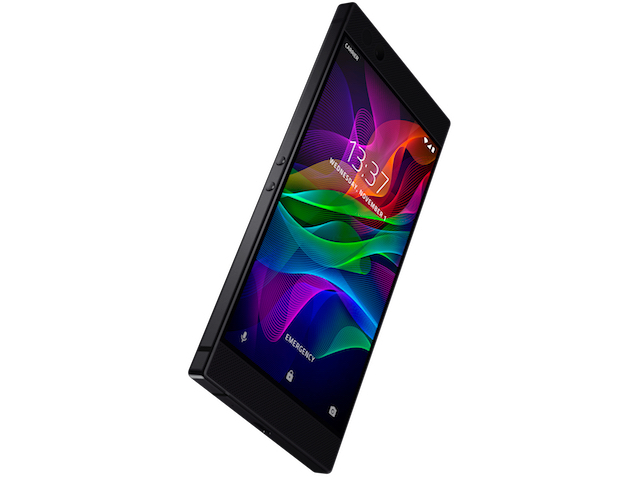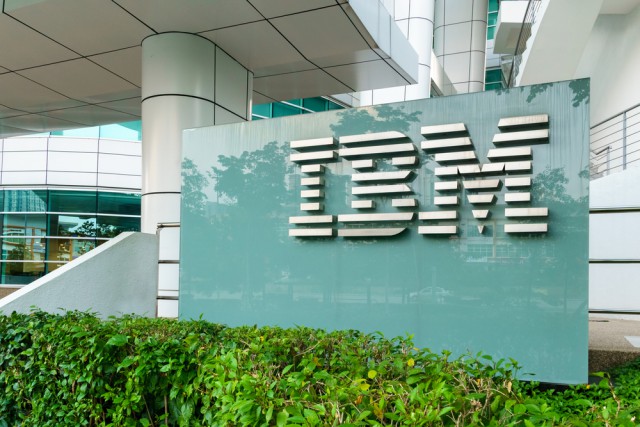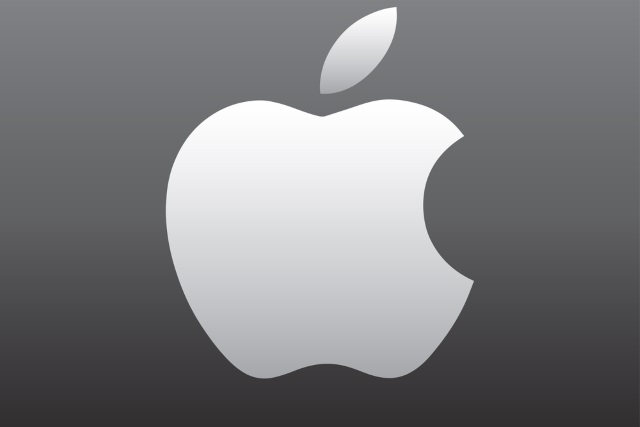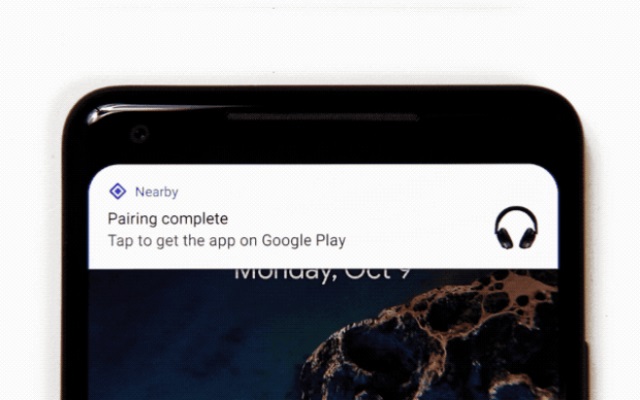
Bitcoin price goes over $7,300
The price of Bitcoin has skyrocketed this year, going from $1,000 in early-January to $3,000 in mid-June. Some pundits saw it coming, but not many believed it would go higher than that. Yet, in early-September, the main cryptocurrency reached $5,000. And it kept going.
Today, Bitcoin is trading over $7,300 for the first time ever. It's up 730 percent since the beginning of the year, and its market cap now sits at over $122.7 billion, which is a few billion more than what the whole market was worth at its June peak. It's quite unbelievable.

Oh my! The Razer Phone is one beautiful Android smartphone
About nine months ago, Razer bought smartphone-maker Nextbit. To be honest, at the time, I thought it was a terrible idea. It felt like Razer was getting involved in too many projects, losing its focus as a gaming peripheral and accessory maker. Not to mention, Nextbit seemed like a poor acquisition, since its design philosophy was cute, colorful, and whimsical, whereas Razer is all about being dark.
Today we finally see the fruit of this marriage, and oh my -- it looks amazing. The "Razer Phone," as it is called, is powered by the Qualcomm Snapdragon 835 and is packing a monstrous 8GB of RAM. It will undoubtedly handle all apps and games you throw at it without breaking a sweat. It even has dual rear 12MP cameras and a huge 4,000 mAh battery with Quick Charge 4+. So, yeah, the specs are great, but that is only part of the story. It is also jaw-droppingly gorgeous! I guess the Nextbit purchase was smart after all...

StatCounter: Windows 10 narrowing the gap on Windows 7, will overtake it this month
Each month, we report NetMarketShare’s figures on the state of the desktop operating system market. Although the numbers occasionally go a little haywire (last month, for example, they briefly showed a sizeable -- and unrealistic -- growth for Linux, before being corrected), they are usually pretty consistent.
NetMarketShare isn’t the only firm that monitors operating system share however. StatCounter also keeps a close eye on the state of things, and its figures paint a very different, and much rosier picture for Windows 10.

NetMarketShare: Windows 10 sees its slowest growth in months
The Windows 10 Fall Creators Update began its rollout last month, and according to AdDuplex it’s already on over 5 percent of systems running the new OS.
Windows 10’s growth has generally been quite slow since Microsoft pulled the plug on the official free upgrade path, and the latest figures from NetMarketShare show no change here. In fact, in October, Windows 10 saw its slowest growth in months.

Ubuntu Linux-maker Canonical joins GNOME Foundation advisory board
Ubuntu is a great operating system, and this year it has gotten even better. Why? The maker of the distribution, Canonical, ditched the much-maligned Unity desktop environment. Instead, the latest version of the distro uses the far-better GNOME.
Not only does Ubuntu get better by using GNOME, but GNOME should improve thanks to Canonical’s contributions. Today, the GNOME Foundation Advisory board announces that Canonical has joined. This makes a lot of sense, as the company’s popular operating system should bring a renewed interest in the desktop environment. In other words, it is win/win for both.

Google launches Poly, a 3D object and scene library for AR and VR creators
Google has today unveiled a new library for virtual and augmented reality creators. Poly is home to all manner of 3D objects and scenes that can be dropped into apps and games.
At the moment Google says there are "thousands" of free models available to download, but the company will be hoping for this to expand massively. Poly is integrated with Tilt Brush and Blocks, and has been designed with a range of VR headsets and phone-based AR systems in mind.

IBM launches container-driven private cloud platform
While public cloud adoption continues to grow, organizations, especially in regulated industries like finance and health care, are continuing to use private clouds to quickly launch and update applications.
To tap into this market IBM is launching a new Cloud Private software platform, designed to enable companies to create on-premises cloud capabilities similar to public clouds to accelerate app development.

Foxit Reader 9 unveils single-key accelerators, plus improves search, commenting and accessibility tools
Foxit Software has released Foxit Reader 9.0, a major new version of its free PDF creation and reader tool for Windows PCs.
The new release focuses on improving the program’s accessibility with new single-key accelerators among other changes, but also adds a new single-column Reflow view and features notable updates to the program’s commenting features and search tools.

IT pros predict a long term future for the mainframe
In spite of trends towards decentralization and the cloud, the mainframe remains a relevant and growing data center hub for many businesses according to a new report.
In the 12th annual Mainframe Research Report from IT solutions company BMC 91 percent of respondents predict mainframe workloads will continue to grow, and 51 percent say more than half of their data resides on a mainframe.

LastPass reveals the threats posed by passwords in the workplace
Passwords are fundamental to modern life, both at home and at work. In the workplace, the security of passwords is paramount, and ensuring that employees are taking matters seriously is an important part of safeguarding any business.
A new report by LastPass -- The Password Exposé -- reveals the threats posed, and the opportunities presented, by employee passwords. The report starts by pointing out that while nearly everyone (91 percent) knows that it is dangerous to reuse passwords -- with 81 percent of data breaches attributable to "weak, reused, or stolen passwords", more than half (61 percent) do reuse passwords. But the real purpose of the report is to "reveal the true gap between what IT thinks, and what's really happening."

Misuse of spreadsheets costs European businesses €55 billion a year
Spreadsheets like Excel were never designed to handle complex analytics and big data tasks, but a growing demand for data insights is leading many businesses to waste effort manually handling data in spreadsheets.
A study commissioned by self-service analytics company Alteryx and carried out by IDC reveals that advanced spreadsheet users spend on average nine hours a week on repeat effort manually manipulating data, wasting €10,000 per year. Across Europe this represents, on average, two billion hours of duplicate work, costing an eye-watering €55bn per year (around $64bn).

Bitcoin breaks $6,600
Just moments ago I was reading about Bitcoin setting a new price record above $6,400. The main cryptocurrency has been incredibly strong, and resilient during crashes, so this latest development does not surprise me one iota.
What also does not surprise me is that Bitcoin kept going after reaching the $6,400 mark, settling above $6,600 at the time of writing this article, based on an average from major exchanges like Bithumb (where it's actually gone past $6,700), Kraken, GDAX and Poloniex.

Why the cloud doesn't work for all businesses [Q&A]
As more and more applications move to the cloud there's an increasing assumption that it's the right approach for everyone. Indeed we've seen recently that many cloud investments are being made out of fear of missing out. But this one size fits all approach isn't necessarily the right one, and can put companies in a difficult position.
We spoke to Michael Hiskey, Chief Strategy Officer from intelligent data management company Semarchy, to find out what businesses should consider before moving to the cloud and how they can avoid being forced down that route.

Apple releases macOS 10.13.1 and iOS 11.1 to add new emoji and patch KRACK... for some
Apple has pushed out the latest updates to macOS High Sierra and iOS. macOS 10.13.1 and iOS 11.1 include a range of bug fixes, and also herald the arrival of a new batch of emoji.
The two relatively minor updates also address the recently-discovered KRACK security vulnerability. But while the WPA2 patch will be welcomed by many people, it is not available for all iPhones and iPads, meaning that large numbers of people will be left exposed.

Google announces Fast Pair to speed up Bluetooth pairing for Android
Google has announced Fast Pair, an update to Bluetooth connectivity that speeds up the process of connecting a Bluetooth device -- such as headphones -- to an Android phone or tablet. It's an idea that's not entirely dissimilar to the technology used by Apple to connect AirPods to iPhones.
Using a combination of BLE (Bluetooth Low Energy) for advertising and discovery, and traditional Bluetooth for pairing, the focus is on speed and security. It's compatible with devices running Android 6.0 Marshmallow and above, and it's part of Google Play services 11.7+.
